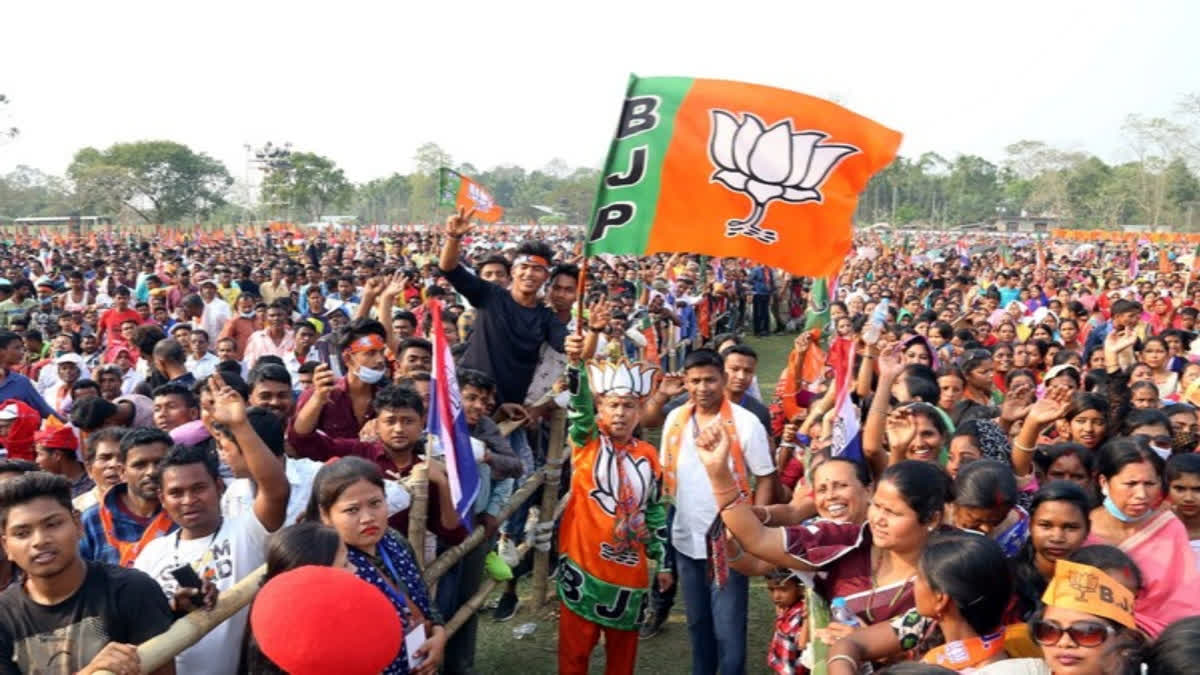New Delhi: Prime Minister Narendra Modi Saturday arrived at Bharat Mandapam in Delhi to attend the Bharatiya Janata Party's (BJP) two-day national conference with over 11,500 delegates. This convention of the ruling party to discuss key strategies for the upcoming Lok Sabha elections, commenced today in the National Capital.
JP Nadda, the national president of the party, will deliver the opening speech at the event, which is scheduled to take place at the Bharat Mandap.
Prior to attending the national office bearers' conference, PM Modi is scheduled to attend an exhibition. There will probably be two proposals made during this conference, sources said.
First, there will be a political proposal that will highlight the PM's vision of a developed India; second, there will be a note of thanks for the building of the Ram temple in Ayodhya.
At a news conference held at the national headquarters of the party in New Delhi, former Union Minister Ravi Shankar Prasad stated that the National Council has been arranged in the same way as the meetings held ahead of the 2014 and 2019 General Elections. As per sources, the party will chalk out a "a comprehensive organisational agenda."
Union Home and Cooperation Minister Amit Shah, Union Defence Minister Rajnath Singhand other senior leaders have already arrived at Bharat Mandapam to attend the convention.
“The Congress and the Communists make various kinds of comments but the BJP is the only party which does maximum organisational work in a democratic manner, be it holding in time the party’s national convention, national executive and other programmes in states and districts,” Prasad added.
Sources said PM Modi has set a goal for the BJP to win 370 seats in the upcoming Lok Sabha elections. The accomplishments of the Modi-administration during the previous ten years, particularly in the area of welfare programs for the underprivileged, will be crucial in achieving this goal.
According to sources, a number of dignitaries will be present at the convention, including members of the national council, former state presidents, MPs, MLAs, and ministers from the central cabinet, as well as representatives from national and state-level parties.
Read More:



